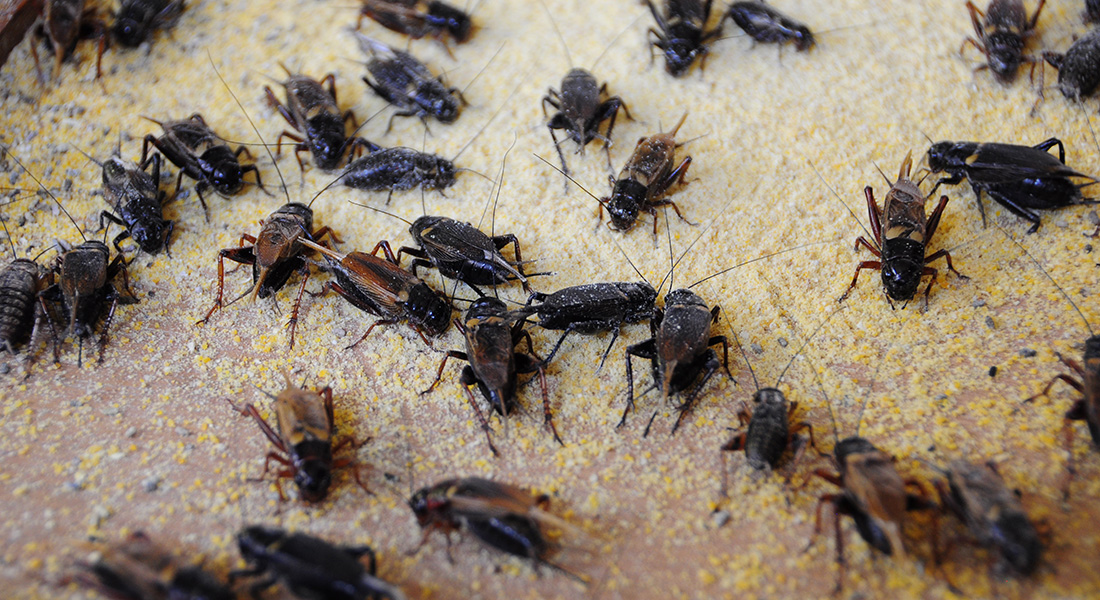Goal 17: Partnership for the Goals

|
Achieving the ambitious targets of the 2030 Agenda requires a revitalized and enhanced global partnership that brings together Governments, civil society, the private sector, the United Nations system and other actors and mobilizes all available resources. Enhancing support to developing countries, in particular the least developed countries and the small island developing States, is fundamental to equitable progress for all, the UN write on their website. Examples on research from UCPH addressing goal 17: |
|
GREEiNSECT |
|
|
GREEiNSECT is a research consortium working on insects for food and feed in Kenya, supporting capacity building and producing scientific evidence through PhD studies in the fields of insect production, food product development, environmental and livelihood assessments. Effect on partnerships, according to GREEiNSECT's handout on Insectproduction and SDGs:
|
Read more about GREEiNSECT. Primary Sustainable Development Goals: 2, 5, 17 This text is redirected by The Secretariat for Development Cooperation at SCIENCE from Department of Nutrition Exercise and Sports |
Researchers help Africa create export of camel milk |
|
|
A group of researchers from DTU and University of Copenhagen collaborate with researcher from Haramaya University in Ethiopia to create basis for manufacturing dairy products based on camel milk. They project may have great influence on jobs and growth in the region because Sudan, Kenya and Somalia are rich in numbers of camels. The researchers investigate which requirements are necessary to develop products and establish the needed capacity on Haramaya University so the university becomes able to support infrastructure and development of new dairy products |
Click here to read a full description of the Haramaya Camel Dairy project. Primary Sustainable Development Goals: 1, 2, 4, 8, 9 and 17 This text is redirected by The Secretariat for Development Cooperation at SCIENCE from Department of Food Science. |
Building Stronger Universities |
|
|
“Building Stronger Universities in Developing Countries” is a partnership between research and higher education institutions in developing countries and Danish universities. The long-term goal of the initiative is to make the participating institutions stronger in the sense that they: Focus will be on institutional capacity building, including strengthening the capacity and quality of PhD education, strengthening the capacity to undertake research and disseminating research knowledge to stakeholders. |
Primary Sustainable Development Goals: 4, 17 This text is redirected by The Secretariat for Development Cooperation at SCIENCE from Danida Fellowship Centre. |
Rights and Resilience in Kenya (RARE) |
|
|
The development objective of the RARE project is to ensure secure and peaceful access to land for climate change adaptation and thereby the resilience of all Kenyan citizens. The project aims to produce and disseminate insights and increase capacities that can help policy makers and practitioners in their attempts to (1) improve land use policies and land use planning, (2) prevent conflicting land claims from erupting into violence, (3) manage land rights in support of pastoralists and other land users’ adaptation and (4) identify and apply innovative approaches to land rights for adaptation. Read more about RARE on the project website. Primary Sustainable Development Goals: 1, 2, 4, 13 and 17 This text is redirected by The Secretariat for Development Cooperation at SCIENCE from Department of Food and Ressource Economics. Watch Danida's video-explainer about the project below:
|
|
Agricultural Transformation by Innovation (AgTraIn, 2011-2016) |
|
|
AgTraIn was a world-class Joint Doctoral Program (180 ECTS) between University of Copenhagen and 5 other leading European universities, funded by the EU Erasmus+: Erasmus Mundus program to enhance and promote European higher education throughout the world. The main objective of the AgTraIn program was to train and educate subject-area experts capable of successful development and transformation of farming systems in the developing world. Thematically, the AgTraIn programme dealt with agricultural production chains, the natural resource base and the involved communities. The scope of AgTraIn ranged from the technical aspects of agricultural production, over post-harvest management, processing and value-addition, to market access and commercialization. The emphasis was on applied research and a key feature of the program is the involvement of key stakeholders in identifying research questions and participating in project formulation. |
Copenhagen University worked as a partner on the AgTraIn programme. Primary Sustainable Development Goals: 4, 12 and 15 |

 Credit: Afton Halloran
Credit: Afton Halloran